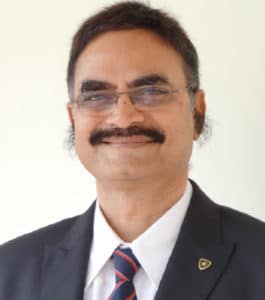
One of the objectives of establishing the institute was to develop facilities of education in a variety of specialised engineering and technological sciences, says Koneru Satyanarayana, President, K L University, in an interview with Elets News Network (ENN).
K L University is a renowned name in higher education, what are the measures taken by the university to match global standards of education?

Koneru Lakshmaiah Education Foundation (KLEF) has gained the current reputation in educations sector by institutionalising best practices, meticulous planning and stringent execution. We strive continuously to achieve and sustain the objective of being a leader in the field of education.
The University is helping its students to meet industry standards and boost employability among them. Outcome-based education, ICT in teaching-learning, project-based labs and certificate courses in emerging technologies are some of the other measures taken to groom the students for life-long learning and inculcate their research and problem-solving skills. Similarly in the area of Research KLEF has been taking quantum steps to ensure a smooth and steady growth.
Research & Innovation is an important part of the education curriculum, what initiatives have been taken by KLU to promote research among students?
The vision and mission of KLEF encourages research culture among students and faculty. Infrastructure and resources for academic research, sponsored research, consultancy, extension and entrepreneurship, are also provided to them. A team of Associate Deans and RPAC monitors the progress of research activity on the campus. Some of the salient points are:
- DST, DSRO, FIST, SAP identify from departments with research potential
- Awards and incentives announced for quality performers and publications
- Workshops on Intellectual property rights conducted
- Mini-projects used as conduits for future research and publication
Another one is Mentor-Mentee programme. Each of the research mentors is assigned 15 mentees to help them identifying relevant research problems and submit proposals to various funding agencies.
Mini-projects are made mandatory in the academic curriculum. Students augment project reports with publication in reputed journals.
Students actively participate in KLEF sponsored community engagement programmes. Several extension activities are also organised by the faculty and students of KLEF.
Outcome-based education, ICT in teaching-learning, project-based labs and certificate courses in emerging technologies are some of the other measures taken to groom the students for life-long learning and inculcate their research and problem-solving skills.
How the curriculum and training provided at KL University help its students in nurturing the skills essential in fostering entrepreneurial thoughts and boosting employability prospectus?
At KLEF, Outcome Based Education (OBE) is followed. The identified outcomes are in line with the vision and mission of the university.
KLEF develops programmes of study that reflect the institution’s values, goals and mission, and provide a good learning experience for students. The courses provide students the opportunity to be co-creators in the learning experience, in additions to improving their academic standards.
The university is committed to provide programmes of study that are attractive to prospective students and are a foundation for long-term study and progression, producing lifelong learners as graduates.
Entrepreneurship Skill Development
Till date, CIIE has organised over 50 events on entrepreneurship in form of Hackathons, ideation programmes, boot camps and domain specific seminars. Our students visited various entrepreneurship centres across the country such
as Centre for Entrepreneurship Development (CED) Hyderabad, Andhra Pradesh Lady Entrepreneurship Association (ALEAP) Hyderabad, National Council of Rural institutes (NCRI) EOI, Ahmedabad.
ICT is playing an important role in improving teaching-learning processes. What kind of infrastructureis developed by the University to make its faculty members and students familiar with the effective use of it?
Information and Communication Technologies (ICT) have become key tools in the field of education. It has enhanced teaching-learning processes, course organisation, effective classroom management, self study, collaborative learning, better communication between teachers and students and research activities.
The various ICT facilities used in teaching-learning processes at KLEF include LCD projectors, computers, television, CD ROM, 24/7 Internet, electronic notice board, slides, digital multimedia, CCTVs, VCD machines, digital boards and Wi-Fi connectivity.
The use of ICT facilities makes procedures transparent. The application and admission procedure is computerised. Attendance, teachinglearning, internal assessment, assignment details, at KLEF is facilitated through Learning Management System (LMS). Moreover online feedback on various courses, operations, video conferencing, webinar, video lectures are made possible with the help of ITC. Some of the courses are delivered by faculty from premier Universities in the US and UK.
KLEF develops programmes of study that reflect the institution’s values, goals and mission, and provide a good learning experience for students. The courses provide students the opportunity to be co-creators in the learning experience, in additions to improving their academic standards.
What efforts are made by the University for promoting equal access to higher education among the deprived section of the society?
Equity, social responsibility and empowerment are part of the core values of KLEF. Starting with admissions to the infrastructure facilities provided by the University are in tune with these core values. All the departments of the university have sensitised the needs of the deprived sections of the society. Some of the facilities are:
- Admissions are done as per the UGC norms. Percentage of seats are allocated as per the Government norms
- Full fee waiver is given to highly meritorious students from economically weaker sections of the society
- Students belonging to SC/ST categories are given fee waivers and an additional scholarship of Rs 10,000 per student is disbursed
- Fee waiver is given to children of ex-service men
- Student admissions are proclaimed on sports quota, cultural quota, Jyothi Surekha, the international archery player is one such example
- The norms of quota are followed for differently-abled students






















